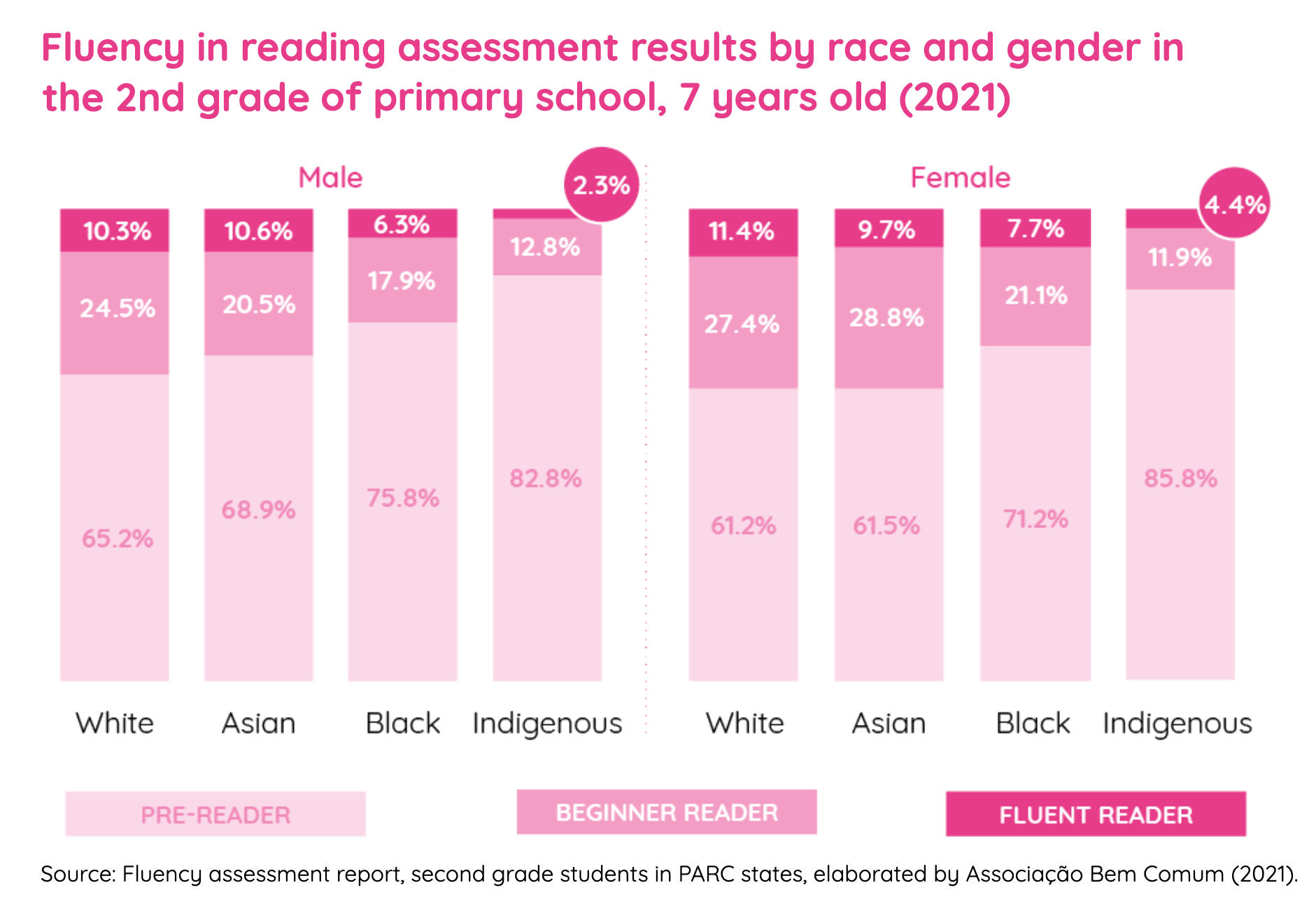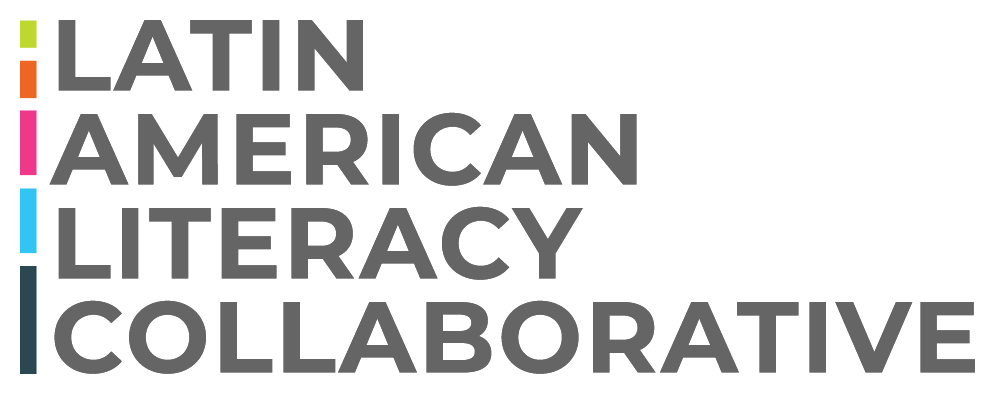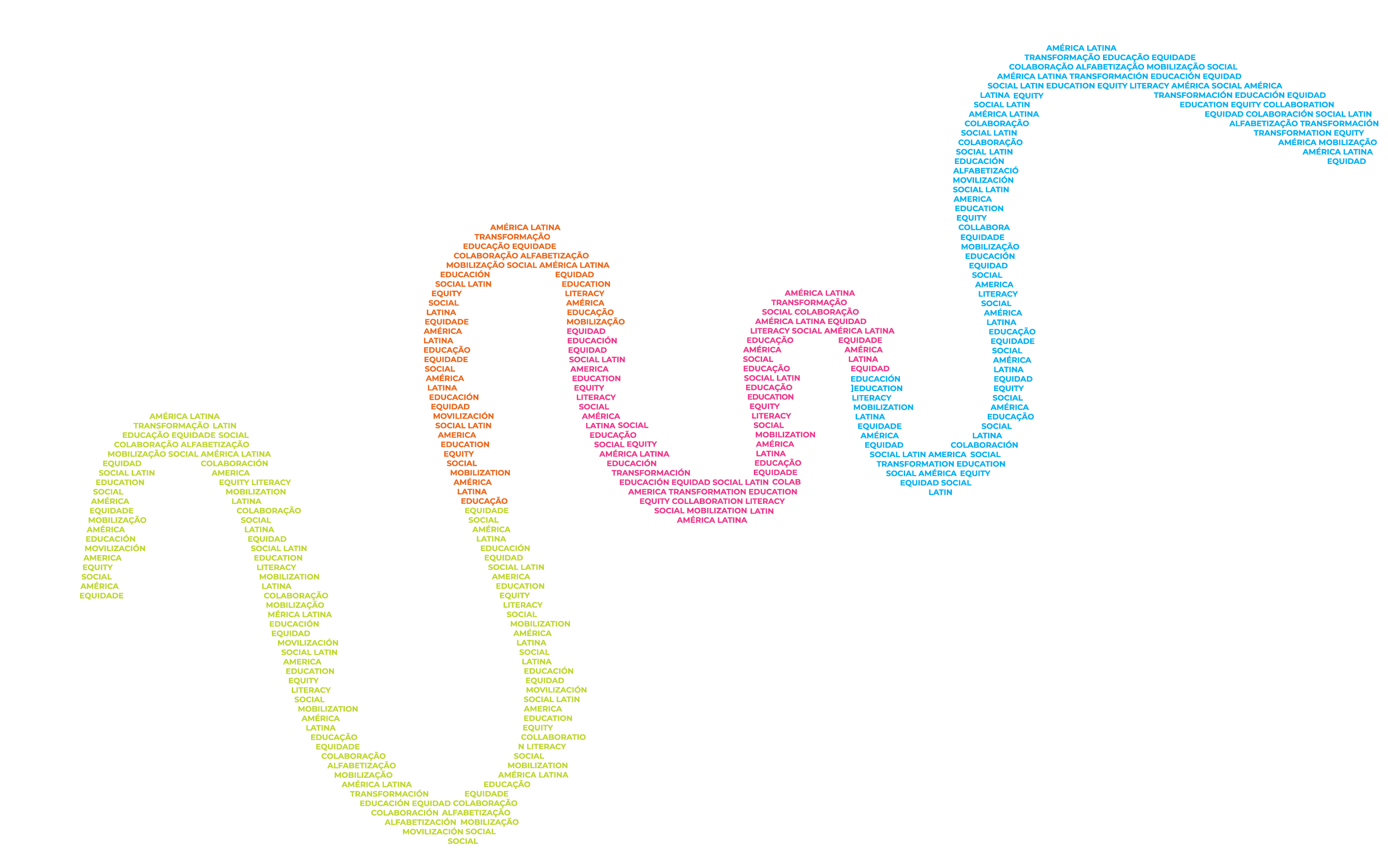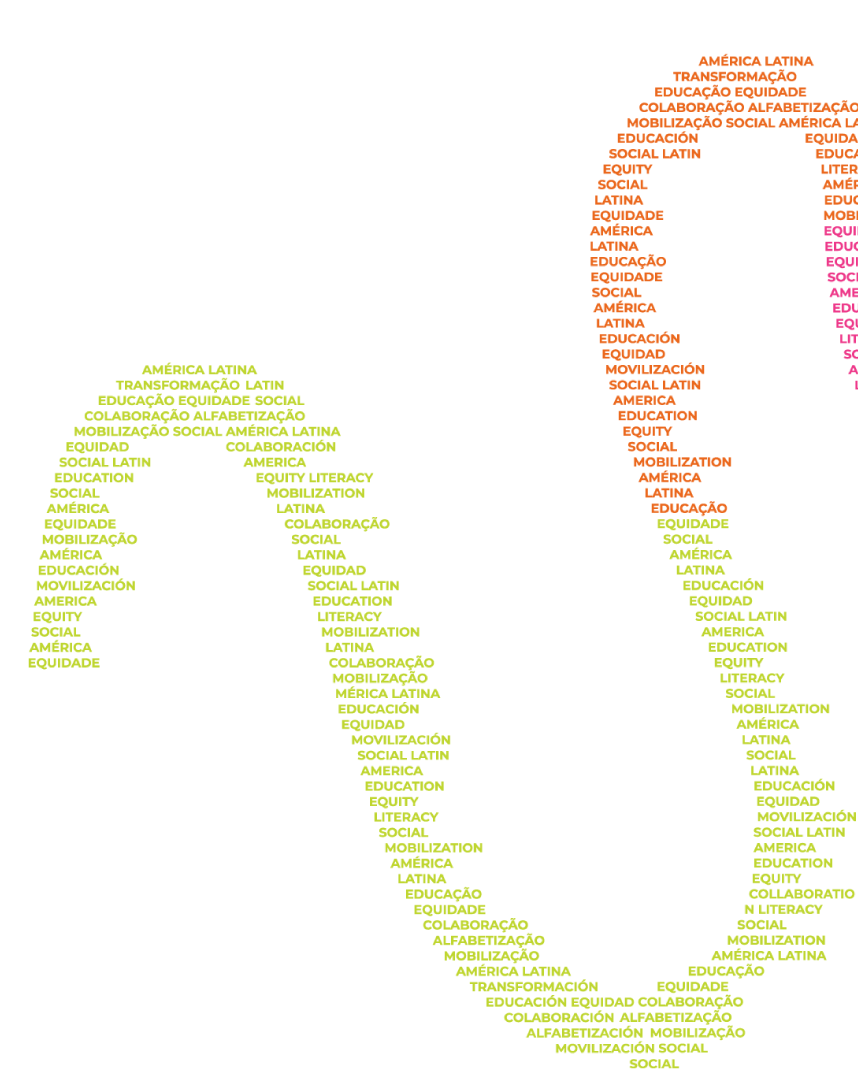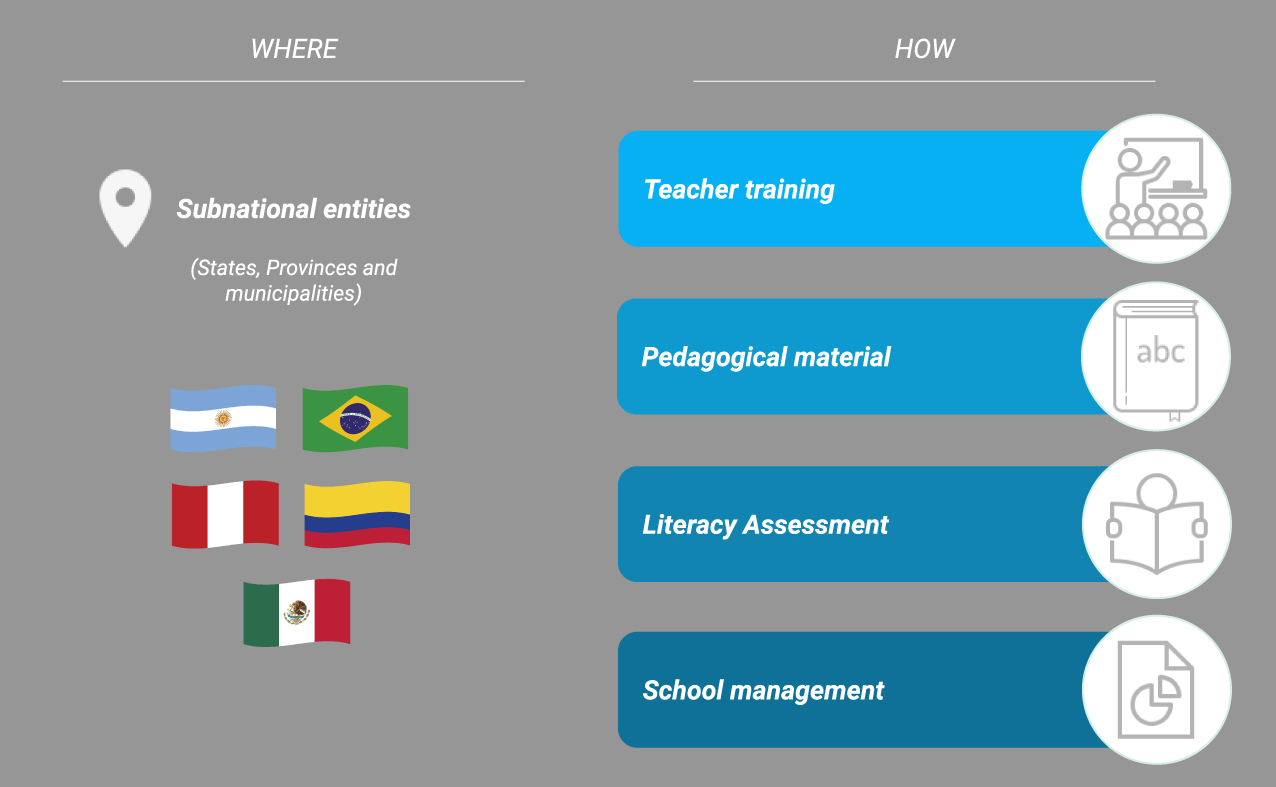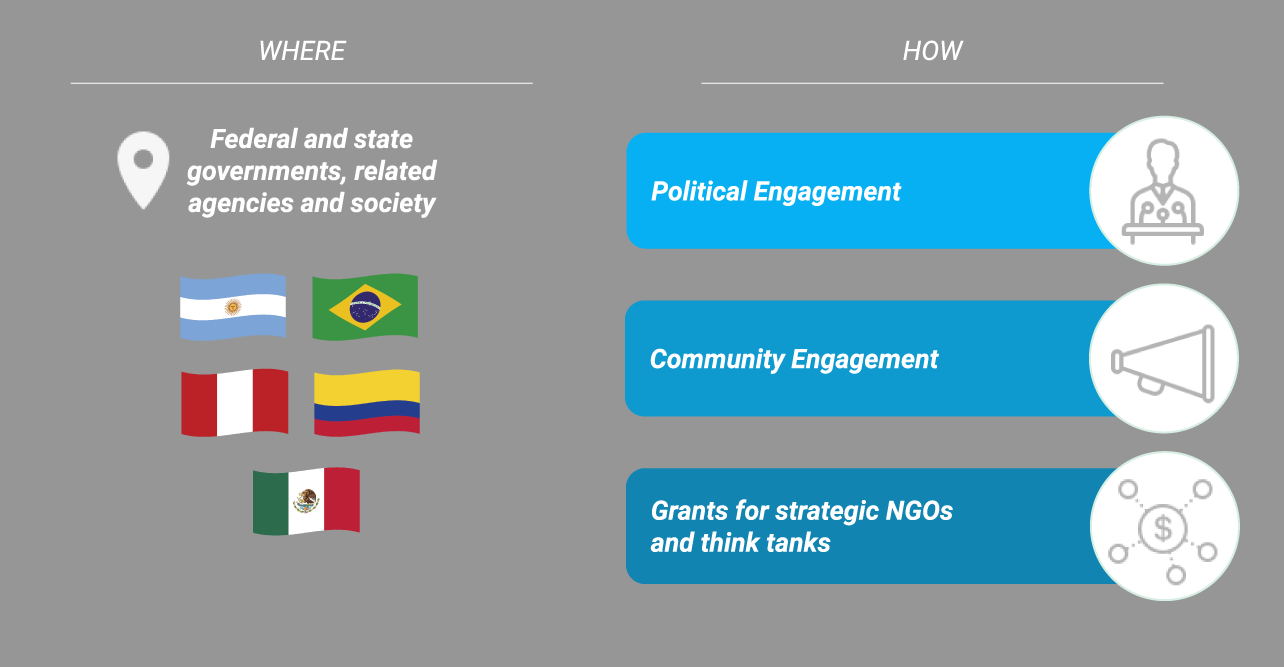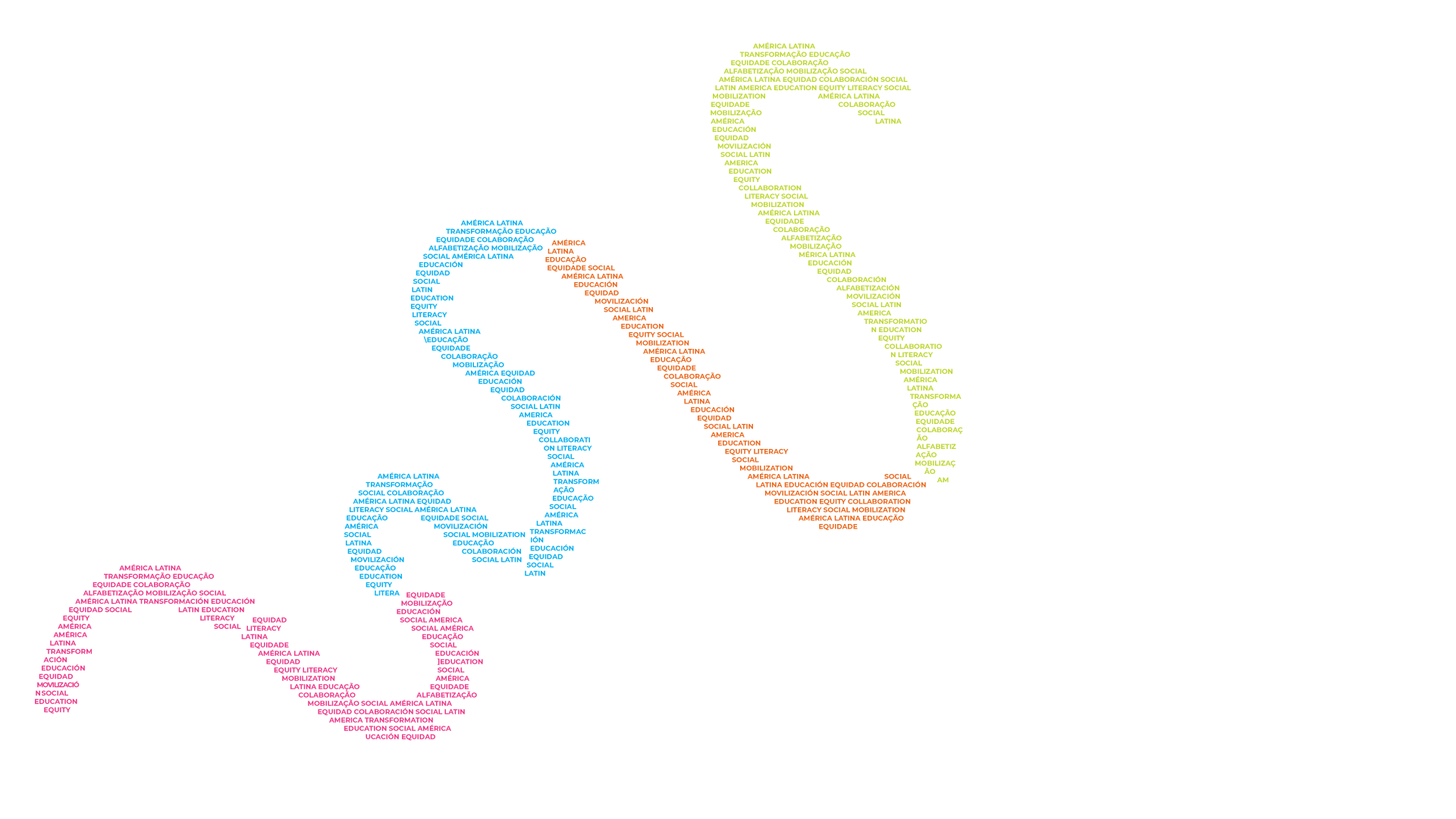
WHO WE ARE
How did one of the poorest states in Brazil—Ceará, with a GDP per capita and population size just slightly higher than Bolivia’s, the poorest country in South America—achieve some of the best and most equitable public education outcomes in the global south? And what if this transformative model could inspire equitable literacy not just across Brazil, but throughout Latin America?
A group of visionary organizations, led by the architects of Ceará’s educational reforms— Associação Bem Comum (ABC) — alongside Lemann Foundation and Natura Institute united to take on this ambitious challenge. In 2019, we initially launched the Brazilian Literacy Collaborative (BCL), with the goal of eradicating illiteracy across Brazil. To date, we’ve scaled this model to 18 states, reaching over 3 million students nationwide. Remarkably, we’ve increased national literacy rates by 20% in less than five years.
In 2023, building on this success, the group expanded its vision and its network, forming the Latin American Literacy Collaborative (LALC), with the goal of bringing literacy to Latin America’s most populous countries — Brazil, Mexico, Colombia, Argentina, and Peru. This initiative is dedicated to scaling the proven strategies of foundational literacy, ensuring that every student in Latin America has the opportunity to read at the expected grade level by the end of this decade.
MAIN PARTNERS
The Bem Comum Association (ABC), founded in 2018, is a non-profit organization dedicated to advancing public education in Brazil. With a team of experienced public sector professionals and educators, ABC supports states and municipalities to implement policies that ensure quality education in an effective, equitable, and sustainable way throughout the educational cycle, with an emphasis on literacy by the second grade. ABC’s brings a wealth of experience scaling innovative solutions and a track record of proven success to LALC.
Lemann Foundation, founded in 2002, is an independent philanthropic organization driven by the desire to build a more just and advanced Brazil. To achieve this, Lemann’s work is grounded in two strategic pillars: Education and Leadership, both permeated by a commitment to racial equity. Lemann Foundation brings over 20 years of experience in scaling national education initiatives. In 2021, the foundation established the Lemann Center of Sobral as a global hub of excellence dedicated to training educational leaders and scaling literacy success across Latin America and the rest of the world.
Natura Institute is a non-profit organization created in 2010 by the cosmetics company Natura&Co, with the goal of promoting quality education in the communities where it operates. The Institute has operations in Brazil, Argentina, Chile, Mexico, Colombia, and Peru, where it works with governments and nonprofits, developing projects aimed at ensuring educational equity and improving learning outcomes. Natura Institute believes in the power of education as a tool for social transformation and seeks to expand its impact through strategic partnerships, always with a focus on innovation and sustainability.

The Bem Comum Association, founded in 2018, is a non-profit organization dedicated to advancing public education in Brazil. With a team of experienced public sector professionals and educators, ABC supports states and municipalities to implement policies that ensure quality education in an effective, equitable, and sustainable way throughout the educational cycle, with an emphasis on literacy by the age of 7. ABC’s brings a experience scaling innovative solutions and a track record of proven success to LALC.
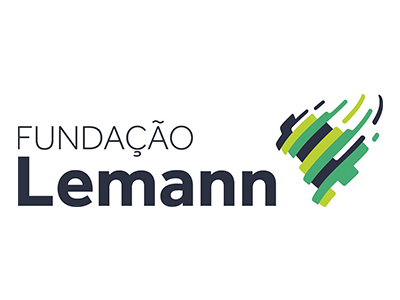
The Lemann Foundation, founded in 2002, is an independent philanthropic organization driven by the desire to build a more just and advanced Brazil. To achieve this, Lemann’s work is grounded in two strategic pillars: Education and Leadership, both permeated by a commitment to racial equity. Lemann Foundation brings over 20 years of experience in scaling national education initiatives. In 2021, the foundation established the Lemann Center of Sobral as a global hub of excellence dedicated to training educational leaders and scaling literacy success across Latin America and the rest of the world.

The Natura Institute is a non-profit organization created in 2010 by the cosmetics company Natura&Co, with the goal of promoting quality education in the communities where it operates. The Institute has operations in Brazil, Argentina, Chile and Mexico, Colombia, and Peru, where it works with governments and nonprofits, developing projects aimed at ensuring educational equity and improving learning outcomes. The Natura Institute believes in the power of education as a tool for social transformation and seeks to expand its impact through strategic partnerships, always with a focus on innovation and sustainability.
Other Collaborators










THE CHALLENGE
In Latin America, four out of every ten students – 3.5 million each year – finish primary school without knowing how to read or write. The pandemic worsened this crisis, setting learning outcomes back by a decade. The most vulnerable children—from marginalized indigenous and afro-descendant communities, urban informal settlements, rural areas with poor infrastructure and children disabilities — are disproportionately affected. Failing to achieve literacy by age 8 leads to a cascade of lifelong setbacks, including higher dropout rates, poorer health outcomes, lower earnings, and even increased mortality rates. The World Bank declared that “eliminating learning poverty is as important as eliminating extreme monetary poverty, stunting, or hunger.” According to the IMF, addressing fundamental skill gaps in Latin America could unlock $76 trillion in unrealized GDP–a seven-fold increase in economic output. This urgent and consequentiale problem is driven by three main factors, all intertwined with, racial, and socioeconomic disparities:
Government Capacity
Lack of accountability and collaboration between national and subnational governments results in uncoordinated literacy efforts and poor school management.
Pedagogy
Inadequate teacher training, outdated materials, high turnover, and limited assessment tools.
Community
Engagement
Insufficient awareness and commitment to literacy across societal levels, including families, business leaders, and NGOs.
OUR SOLUTION
Our solution aims to cut illiteracy rates in half across Brazil, Mexico, Colombia, Argentina, and Peru, reaching over 20 million children in five years. This system-level change will ensure that for generations to come, at least 8 out of 10 Latin American children learn to read and write at the expected grade. In Brazil, where our model is well underway, we plan to achieve near universal (95%) literacy by the end of the grant period. Our solution will build on our success in Brazil, where we’ve already reached over 3 million students. We tackle the three root causes of literacy failure–government capacity, pedagogy, social engagement—while establishing new regional collaboration mechanisms to scale change.
Government
capacity building
Support national and subnational governments and school districts to develop and implement coordinated, equitable literacy strategies and consistent evaluation standards.
Pedagogical
Intervention
Enhance teaching material, conduct regular literacy assessments and train teachers continuously, focusing on gender, race and intersectional equity
Social
Mobilization
Engage civil society and families through advocacy, awareness campaigns, and support resources to make literacy a shared priority across communities.
To amplify these efforts, we’ve established the first intraregional South-South literacy coalition in Latin America. Supported by the Lemann Center of Sobral, the coalition facilitates knowledge exchange and best practices across partner organizations. We host regular events, conduct regional studies, and share our findings internationally, aiming to accelerate our impact in Latin America and inspire similar initiatives in other parts of the Global South.
INSPIRATION AND EVIDENCE
The Sobral, Ceará Success Story
Our journey began in Sobral, a municipality with 200,000 inhabitants located in Ceará’s countryside. In the late 1990s, more than four out of five students in Sobral were not performing at grade level. In 2005, the municipality was in 1,366th place out of 5,570 cities in the Basic Education Development Index (IDEB).
In just four years, the literacy rates in the poor-performing city rose from 56% to 97%, and overall test scores surpassed those of their counterparts in the wealthiest suburbs of São Paulo and Rio. This stunning success upheaved entrenched cultural norms that poor children of color cannot learn.
References
Evolution of Ceará’s municipalities literacy rates between 2007 and 2019 – 2nd grade of primary school
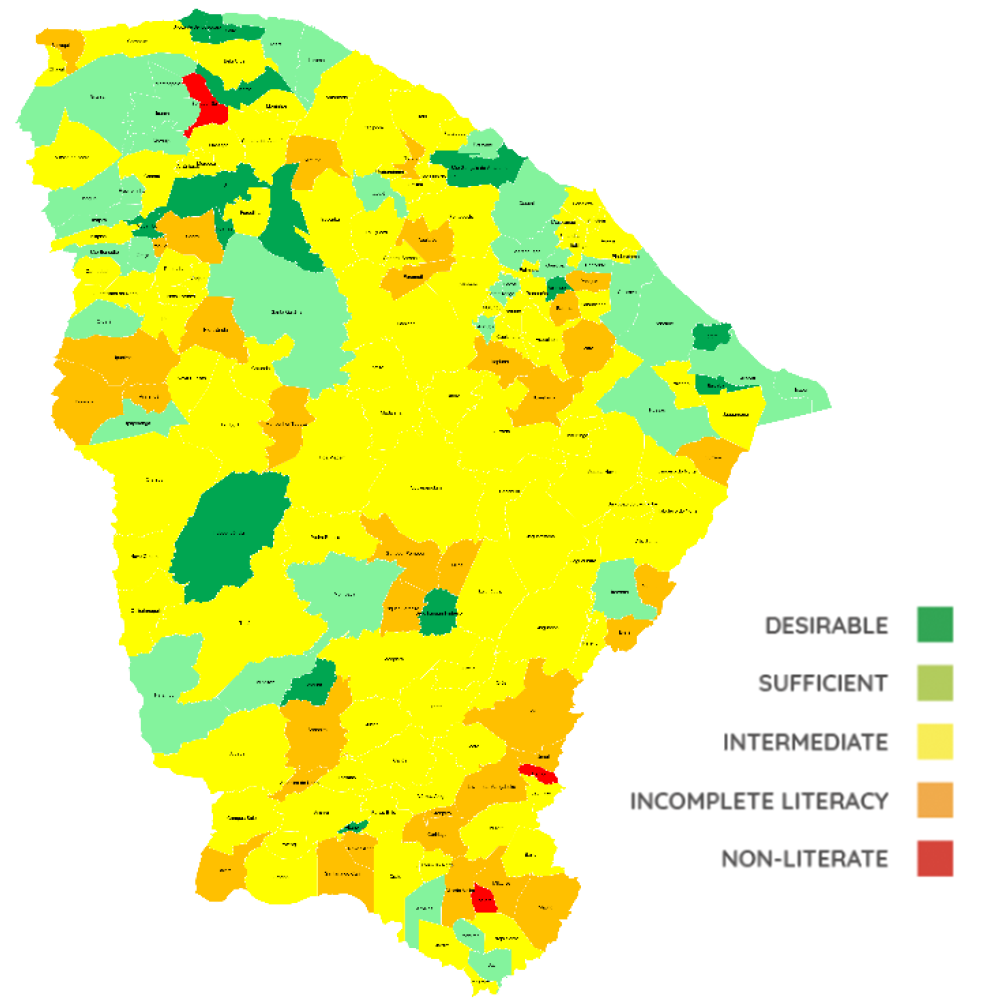
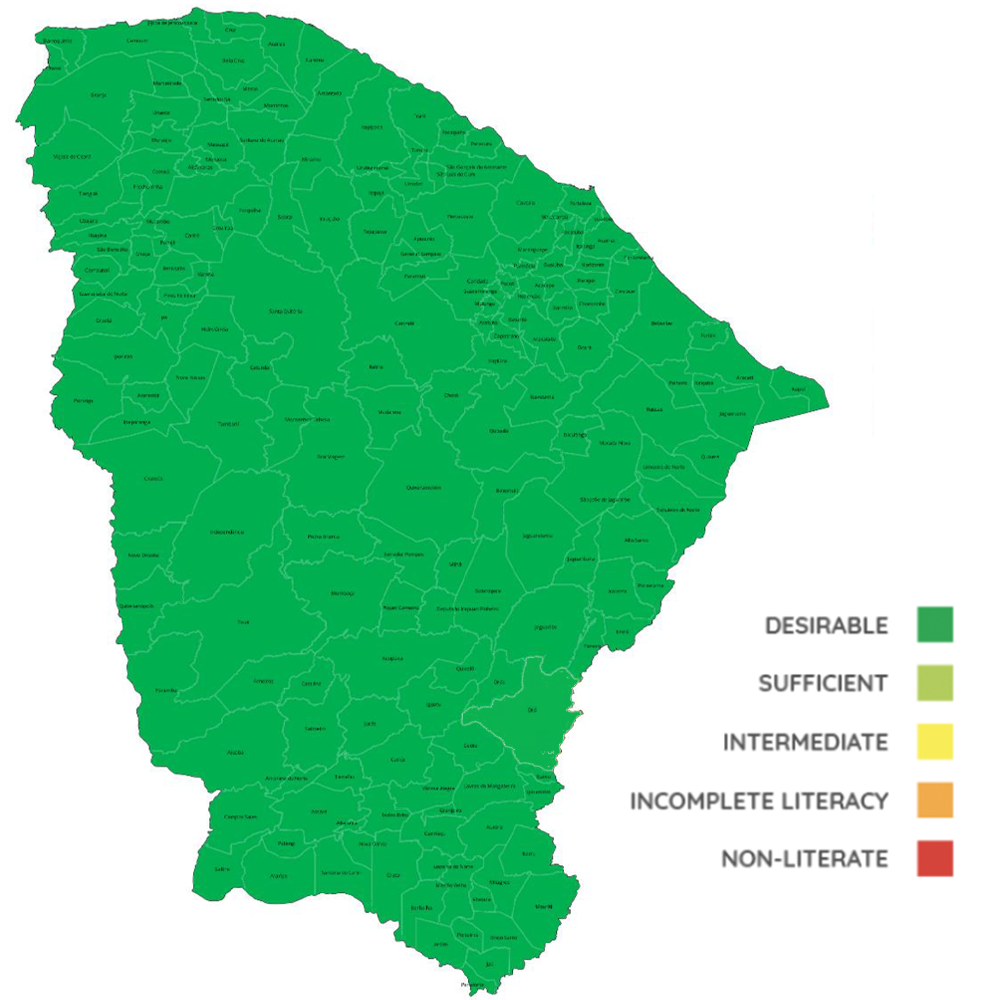
Source: Ceará's state assessment of 2nd grade students (2007-2019), elaborated by Associação Bem Comum.
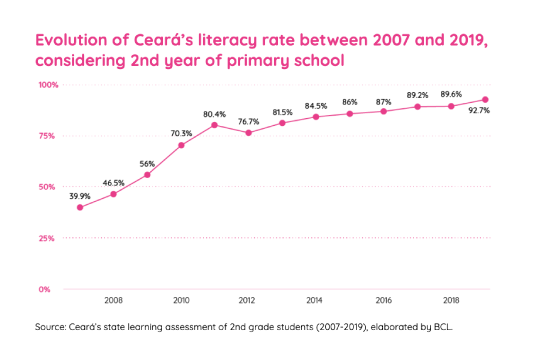
DIVERSITY, EQUITY AND INCLUSION
In Latin America, marginalized groups—especially Black, Indigenous, and children with disabilities—are disproportionately affected by the learning crisis. One in five Afro-descendant children do not complete primary school, double the regional average, and children with disabilities face a dropout rate three times higher than their peers. Meanwhile, only 9% of public primary school teachers receive training in inclusive education, and just 1% are trained in ethnic-racial equity.
Our DEI strategy began in Brazil, the region’s most diverse and unequal country, but will be tailored to the unique contexts of each country. For instance, in Mexico, we’ll concentrate on indigenous students, and in Colombia, we’ll prioritize Afro-descendant and displaced migrant children., We equip governments and schools to incorporate unconsious bias and ethnic racial topics into teacher training and educational material, as well as enhance race-related data collection. Our approach is rooted in principles of community-centered design, with partner organizations led by individuals from the communities they serve—predominantly women of color– solutions are created by and for those historically excluded from decision-making. To ensure that DEI remains core to every aspect of our strategy, we have earmarked a significant portion of our budget (6.2%) specifically for efforts dedicated to marginalized groups.
